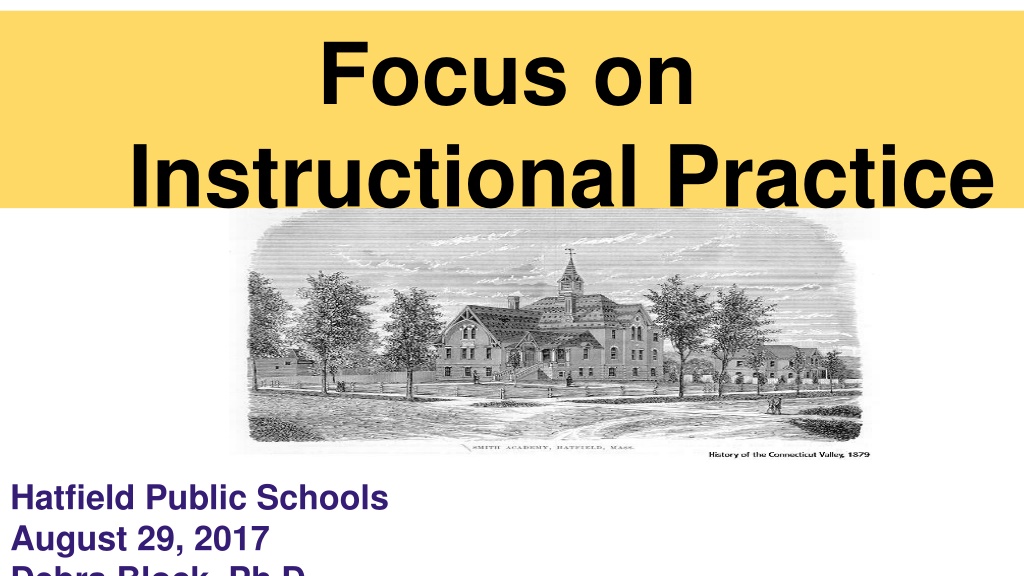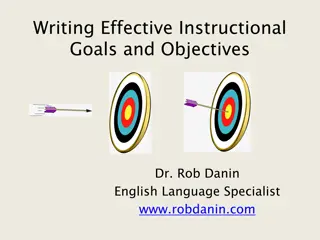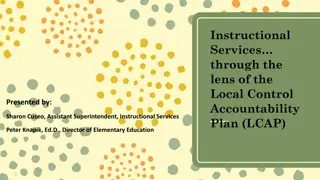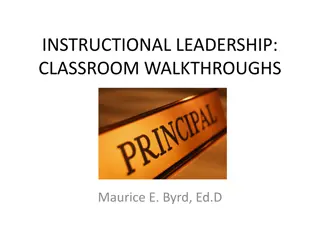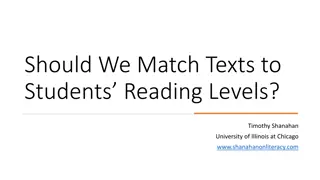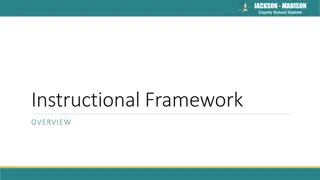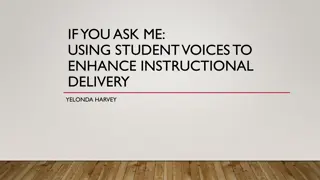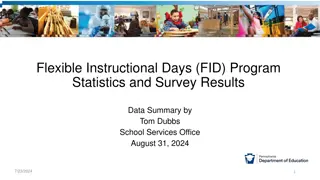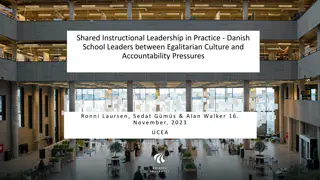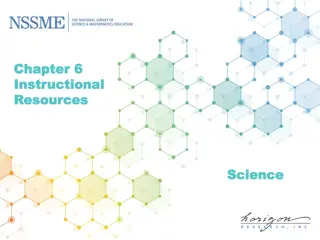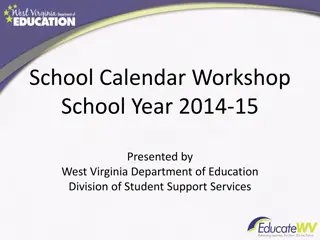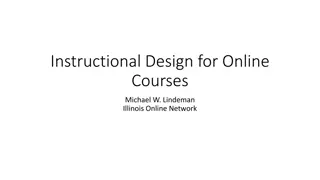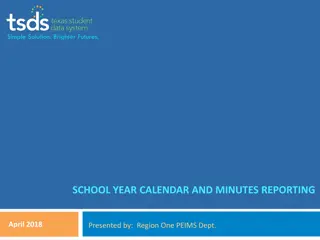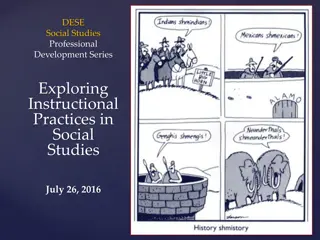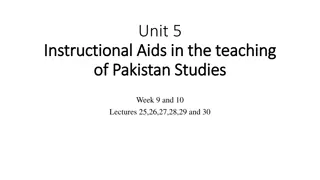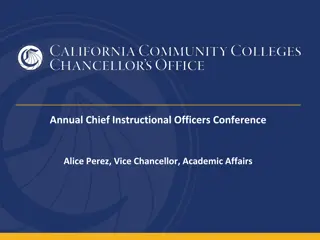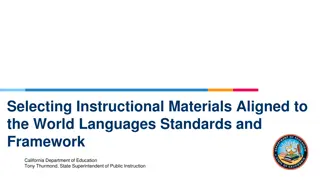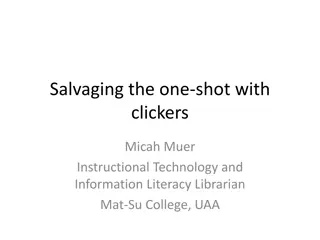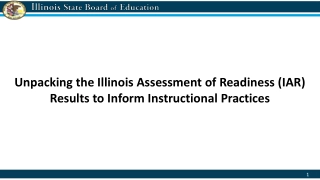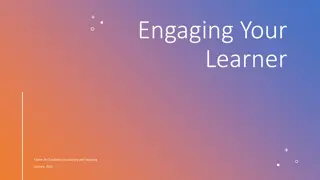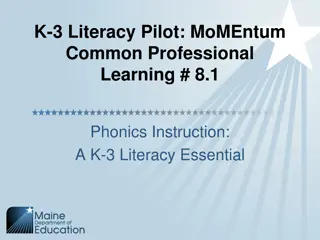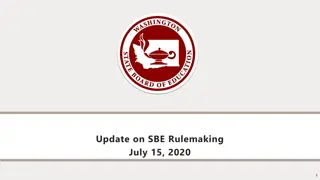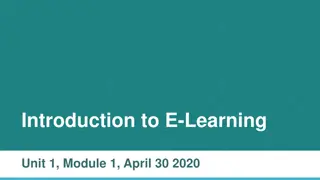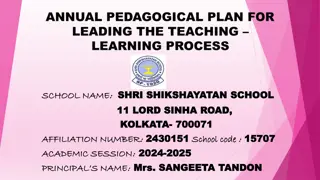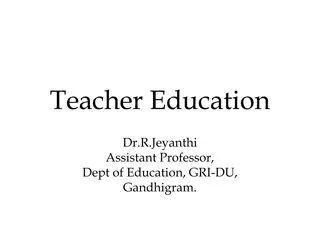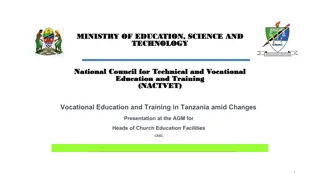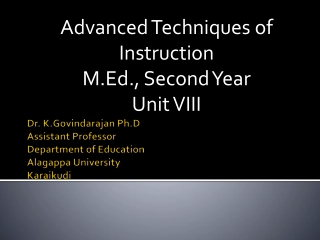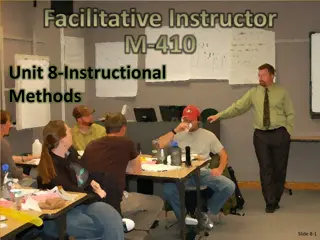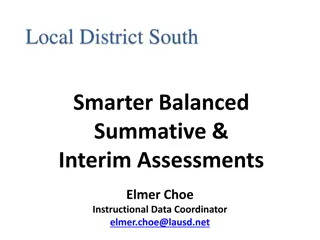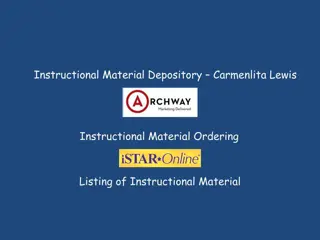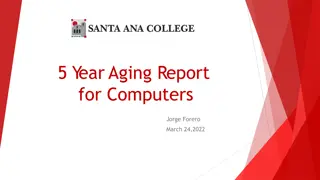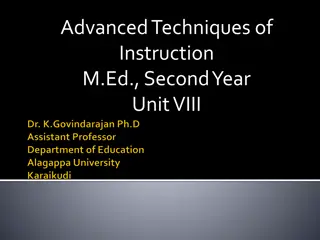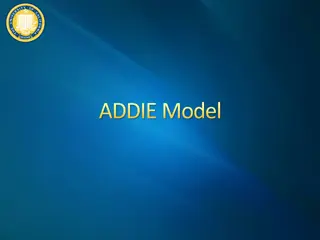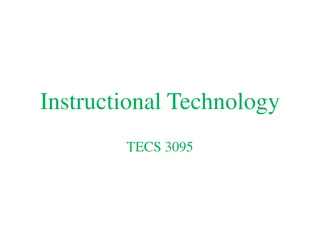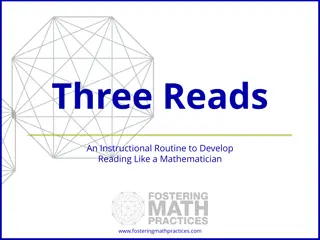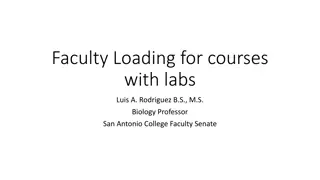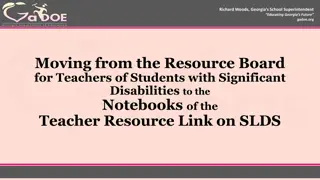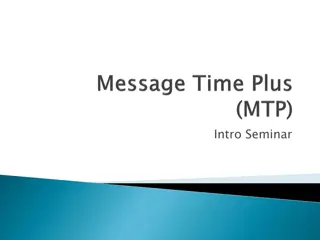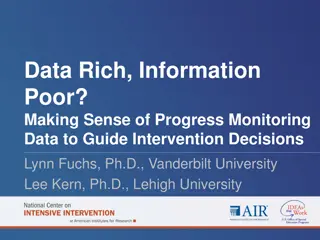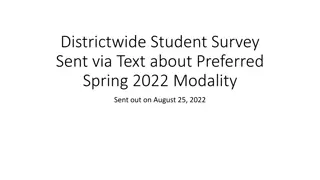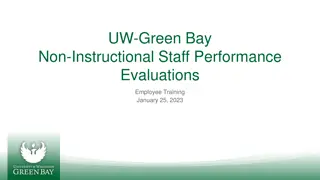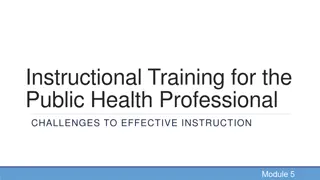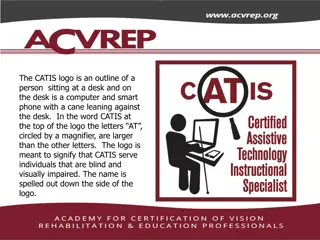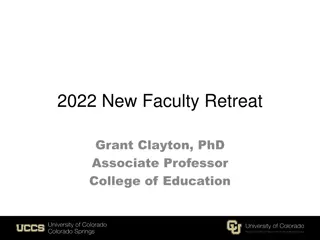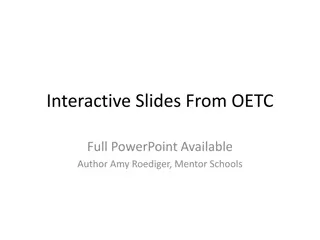Enhancing Instructional Practices in Education
Exploring the value of cooperative learning, reflective practices, and goal setting in educational settings. The focus is on transforming teaching methods to promote student engagement and active learning. The content emphasizes the importance of process-oriented approaches over outcome-based goals for long-term success in education.
Download Presentation

Please find below an Image/Link to download the presentation.
The content on the website is provided AS IS for your information and personal use only. It may not be sold, licensed, or shared on other websites without obtaining consent from the author. Download presentation by click this link. If you encounter any issues during the download, it is possible that the publisher has removed the file from their server.
E N D
Presentation Transcript
Focus on Instructional Practice Hatfield Public Schools August 29, 2017 Debra Block, Ph.D.
AGENDA I. How Can What We Know Change? II. Growth, Reflection, and Goal Setting III.How Do We Start? IV.June V.Danger of a Single Story VI.Impatient Problem Solving VII.Pass the Baton VIII.Next Steps
Value of Cooperative Learning STUDENT ENGAGEMENT/ACTIVE LEARNING PROCESS BEFORE PARTICIPATION CHECKS FOR UNDERSTANDING DIFFERENTIATION
T.A.P.S. Questions: Which approach for which task? Which goal? Which student? Match task to goal Match task to goal (yes--there twice for emphasis) Total class Alone Partners Small Groups
See Think [Justify] Wonder
Imagine What Youll Know Tomorrow https://www.youtube.com/watch?v=2w0fInUh tnk
For MY eyes only! Me: 8/29 Me: Year 1 Supervisor Colleague Beloved Student Challenging Student 3 adjectives that the person at the top of the column would use to describe you as an educator
The Growth Model What does it mean to learn? What does it mean to be smart? What does it mean to do well?
Whats the difference? Great throw. I like how you re doing that. Great approach to that project. Great job on that project.
One is to focus on the process of living healthfully rather than the goal of being healthy. A recent University of Zurich study tracked the progress of 126 dieters and found that the more weight the subjects lost in any given week, the less weight they would lose (or the more they would gain) the following week. But this rebound effect was weakest when the subjects homed in on the process of changing their eating behavior rather than on the outcome of losing weight or improving their appearance. New York Times, October 25, 2015 How Salad Can Make Us Fatter
Good Job Mommy WHAT IS GROWTH??
Learning Strategy: The Final Word 1. Assign reading. Ask students to highlight two to three items in their reading that were most interesting or thought-provoking. This can be assigned as work outside of class. 2. Formulate groups. All people within each group should have read the same article or section. 3. In turn, each individual shares one of the items they highlighted, but does not comment on it. When sharing their item, it is helpful to give page, column, and paragraph info so the item can be quickly found by everyone in the group. To share the item once people have found it, simply read it. 4. Starting to the left of the person who shares the item, group members comment, one at a time, in round-robin order about the item. It is important that there is no cross talk. 5. The person who initially shared the item then shares his/her thinking about the item last, getting the final word. 6. Repeat the pattern so that each group member gets an opportunity to initiate an item from their highlighted list. What is interesting about the Final Word process is that the person who initiates the item may have a completely different perspective about it once others have all commented on it. This process is excellent for helping people see others perspective, developing listening skills (no cross- talk), and challenging assumptions.
The I. T. P Fill in the Final Column What Adjectives Would You Like To see on Your List in June??
How to Jigsaw Divide into groups and have each group take on one component of a story, article, subject content, etc. Each group masters its content and decides on the best way to present its area of expertise . Works as a great way to review elements of fiction, subject area content, steps to solve a problem. It allows students to go deep, take ownership, and demonstrate mastery.
WHERE DOES THE STORY BEGIN?? 1. please read the selection you have been given 2. story of the Williams family began in the location described in your reading be prepared to explain to the other groups how the 3. note any questions you have
WHERE DOES THE LEARNING BEGIN?? Now think about the students in your class. Where does their story begin? Do all of their stories begin in the same place? Do a Turn and Talk. Briefly discuss where the story begin for the students in your class. There are no right or wrong answers here. Be prepared to present your partner s answer to the group.
CHALK TALK 1. Each table (spot) will be a possible starting point for a conversation/topic/issue 2. Using your marker, write down your thoughts/questions/concerns 3. Read the comments of others at your table--you may reply to their comments, ask questions, or offer other observations 4. Chalk Talks are SILENT ACTIVITIES 5. Please be respectful of the opinions of others 6. Time permitting, you will rotate to all of the table, eventually returning to your home table
WHERE DOES THE TEACHING BEGIN?? The items below are possible STARTING POINTS for a lesson. What are the first things you might do do with your students? Critical Thinking Differentiation Decisions Content Acquisition Skill Acquisition Use of Technology
JUNE What would it ould it break your heart if your students left your room in June not knowing, not understanding, not being able to do????????
The Danger of a Single Story: Chimamanda Adichie TEDTalk http://www.ted.com/talks/chimamanda_adichie_the_danger_of_a _single_story Is there a danger of a single story in what you teach? How might it affect your instructional practice?
PATIENT PROBLEM SOLVING -https://www.youtube.com/watch?v=NWUFjb8w9Ps As you watch the following video, Consider the way we usually ask students questions in Math. What is the speaker s critique of this process? What does Impatient Problem Solving look like in your discipline? (even if you don t do it)
PATIENT PROBLEM SOLVING What Does Patient Problem Solving Look Like in Your Discipline? How Might It Affect Your Instructional Practice?
Lesson Planning Activity: Model Smart Phone Literature Project https://betterlesson.com/user/32912 2/60574/155760/dr-elizabeth-watts- bromery/curriculum
Lesson Planning Activity: Practice Using one of the following Complex Texts, create a lesson or use one of the following: Uncle Sam s Family Tree, https://collections.leventhalmap.org/search/commonwealth:3f463673h Whale Chart, https://www.loc.gov/rr/hispanic/portam/img/whaleall2.jpg Ordeal by Cheque, http://ghsbears.pbworks.com/f/Cheques.pdf Comparing Six European Metro Systems, https://s-media-cache- ak0.pinimg.com/736x/32/4d/05/324d05e69154a8c8c91c06e46a215cd0--public-transport- transportation.jpg Massachusetts Population and Elector Graph, 1790-2010, http://maps.bpl.org/sites/default/files/Massachusetts_Population_and_Electoral_College.jpg STATE PERCENT OF OVERALL US POPULATION AND ELECTORAL VOTES BASED ON 2010 CENSUS (Handout )
Speed Dating Our topics: A. Try Something New (Favorite Teaching Strategies) B. Reflect on Your Practice C. Visit a Colleague D. Have Debra In to Model/Co- Teach
HOW TO FACTOR ASSESSMENT INTO GRADING (ONE POSSIBLE MODEL) (X%) (Y%) (Z%) Participation Progress Performance Attends Class Each Day Follows Directions. Shares Writing Regularly Offers Constructive Feedback to Others Maintains a writer s notebooks Completes Portfolio requirements Improves in ability to: Use writing strategies independently Know when own writing needs to be revised Edit own writing and the writing of others Choose good writing topics Write in different forms Produces writing that is equal in quality to the best writing of other students at this grade level Quality is determined by reference to authentic student writing samples and classroom writing criteria THE THREE P MODEL OF GRADING
